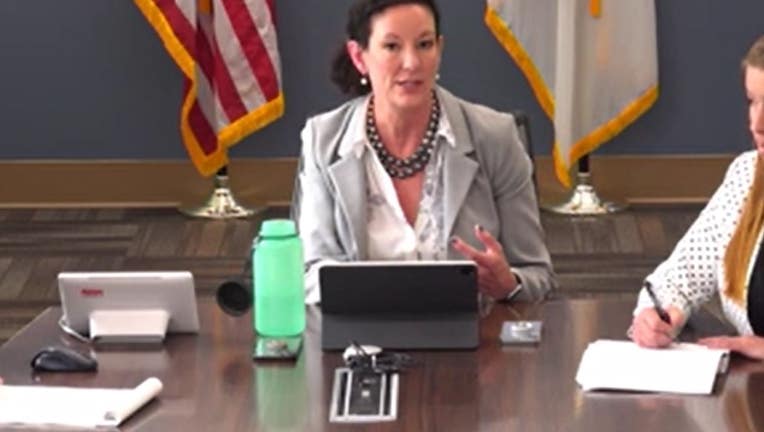California prisons' mental health programs put into rare receivership

SACRAMENTO, Calif. - A federal judge in Sacramento has put control of California prisons' mental health programs into a rare receivership, overseen by former Bureau of Prisons Director Colette Peters.
U.S. District Senior Judge Kimberly Mueller in the Eastern District of California ruled that Peters, who left the BOP the day President Donald Trump took office, should develop an oversight plan for psychiatric services for the California Department of Corrections and Rehabilitation.
Three prior candidates, for varying reasons, did not want the job, the Los Angeles Times reported.
Peters, who promised reform when she took the BOP job, ended up closing FCI Dublin in the Bay Area in April 2024 after she said she couldn't change the sexualized culture at the all-women's prison there despite throwing all sorts of resources at the problem.
Peters' decision to close FCI Dublin came 10 days after a federal Oakland judge named a special master to oversee the prison, plagued with officers found guilty of sexually abusing incarcerated women during the time period of 2019 to 2022.
Mueller's decision to make Peters a "receiver-nominee," sort of like a special master herself, was made public on March 19. Lawyers have until March 28 to comment on Peters' appointment.
A receivership is a court-ordered process that gives a third party control of an agency.
The judge said Peters is to be paid $400,000 a year, prorated for the four-month period.
Her job will be to come up with a detailed "Receivership Action Plan" that will include a proposed timeline and set of metrics to evaluate goals and successes, according to the judge's order.
More than 34,000 people incarcerated — more than a third of the California prison population — are considered to have some sort of serious mental disorder, according to court filings.
And according to court documents, California has never had enough mental health staff to provide an acceptable minimum level of care in the last 35 years.
In 2023, the state found that of the 30 prisoners who killed themselves, more than a fourth had received inadequate mental health care because of understaffing.
Mueller ordered California to pay $112 million in fines after finding top California prison officers in civil contempt for failing to provide adequate mental health in incarnated people.
The long-running court battle is known as the Coleman case, filed by San Francisco attorney Michael Bien in 1990 on behalf of Ralph Coleman, who suffered from a lack of psychiatric services at Pelican State Prison. The defendant is Gov. Gavin Newsom, et al.
The Coleman litigation continues to this day because CDCR has never fully complied with the orders issued by the U.S. District Court for the Eastern District of California. The case includes everyone incarcerated in California prisons who receives mental health care.
Appointing a receiver is a rare step taken when federal judges feel they have exhausted other options, according to California Healthline.
Mueller’s appointment of Peters as receiver comes nearly 20 years after a different federal judge took control of California’s prison medical system and installed a receiver, currently J. Clark Kelso, with broad powers to hire, fire, and spend the state’s money.

